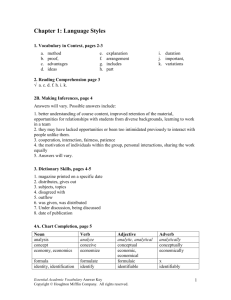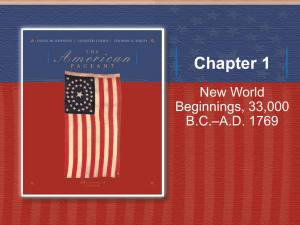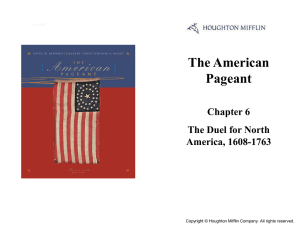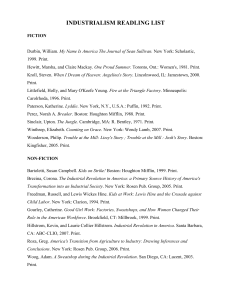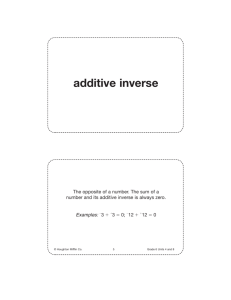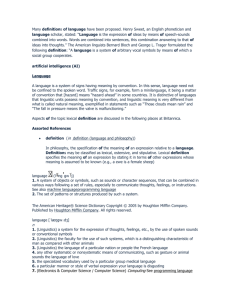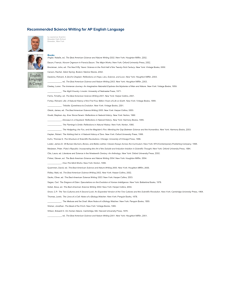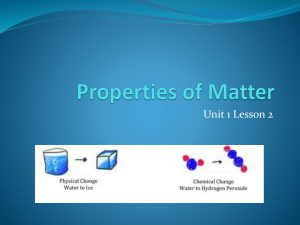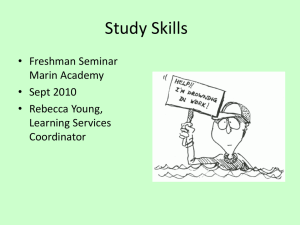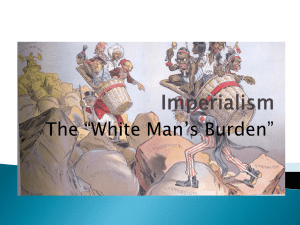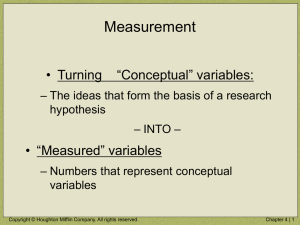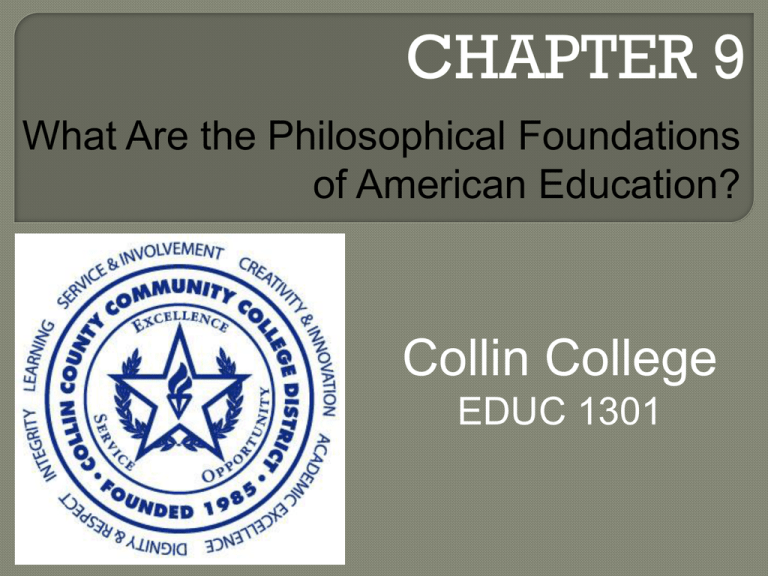
CHAPTER 9
What Are the Philosophical Foundations
of American Education?
Collin College
EDUC 1301
Chapter 9 – What Are the Philosophical
Foundations of American Education?
I.
A.
B.
C.
Philosophy Primer
Schools of Philosophy
Your Philosophy of Education
Copyright by Houghton Mifflin Company. All rights
reserved.
92
Take
the Philosophy Test
11 M/C Questions
No wrong answers
Score with Chart on page 3
Copyright by Houghton Mifflin Company. All rights
reserved.
93
Metaphysics
The nature of the real world and
existence
Epistemology The nature and origin of knowledge
Axiology
Logic
• Values and value judgments
• Includes ethics and aesthetics
Reasoning: includes deductive and
inductive reasoning
Copyright by Houghton Mifflin Company. All rights reserved.
9-4
SubjectCentered
Perennialism
Essentialism
ChildCentered
Romanticism
Progressivism
Copyright by Houghton Mifflin Company. All rights reserved.
9-5
Views
nature and human nature as constant,
unchanging
Purpose of life is to search for constant,
changeless truth
Education develops mental discipline
needed to search for eternal truths
Curriculum is based on timeless classics in
Western culture, such as Great Books
Copyright by Houghton Mifflin Company. All rights
reserved.
96
Views
the mind as the central element of reality
Learning happens through contact with the
physical world and reasoning from
observations
Curriculum based on a core of essential
knowledge for living a productive life
Copyright by Houghton Mifflin Company. All rights
reserved.
97
Nature
and human nature are preferable to the
evils of organized society
Needs and interests of the individual student
are more important than those of society
Learning is self-guided and self-paced
Curriculum is led by child’s curiosity, rather
than set by teachers
Copyright by Houghton Mifflin Company. All rights
reserved.
98
Views nature as ever-changing
Knowledge must be constantly redefined and
rediscovered to keep up with constant change in the
world
Purpose of education is to learn to solve problems
and discover knowledge
Curriculum based on problems to solve, either
created by teacher or discovered by students
School should be democratic to provide practice for
participation in democratic government
Copyright by Houghton Mifflin Company. All rights
reserved.
99
People
learn from the consequences of their
actions and those of others
Behavior that is rewarded is more likely to be
repeated
Behavior that is punished or not rewarded is
less likely to be repeated
Curriculum should be based on clearly
defined behaviors which students are
rewarded for achieving
Copyright by Houghton Mifflin Company. All rights
reserved.
910
Knowledge
must be constructed in the mind
by each learner, rather than transmitted
Learners constantly reconstruct their mental
knowledge as new information becomes
available
Curriculum should involve students in real
situations that let them use and reconstruct
prior knowledge as new information is
presented
Copyright by Houghton Mifflin Company. All rights
reserved.
911
An
ongoing process
Requires reflection and experience
Eclecticism is not an excuse for sloppy
thinking
Copyright by Houghton Mifflin Company. All rights
reserved.
912
Write Your
Philosophy of Education
Guidelines are in the lab manual and on
the handout
Due March 29
USE NAME OF A PHILOSOPHY!
Copyright by Houghton Mifflin Company. All rights
reserved.
913

